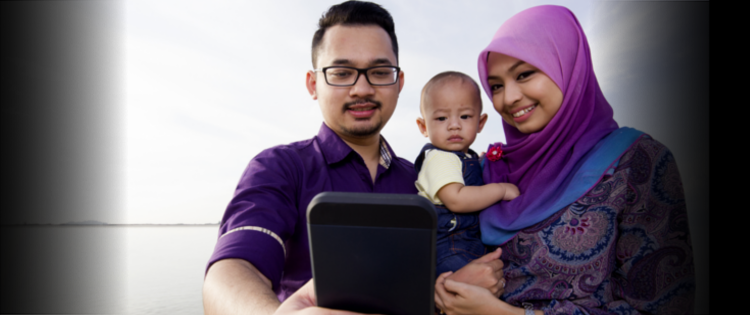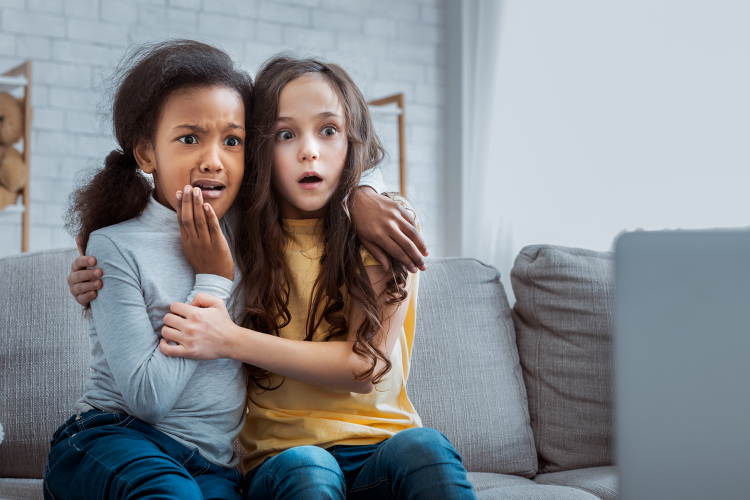
Is it dangerous to have my 3-month-old Skype with his grandparents?
Is it dangerous to have my 3-month-old Skype with his grandparents? https://mediatrics.com/wp-content/uploads/2017/01/BabySkypeAtM.png 750 315 Mediatrics Mediatrics https://mediatrics.com/wp-content/uploads/2017/01/BabySkypeAtM.pngQ: I’d like my parents to be able to see and start talking to my three-month-old son via Skype on my smartphone. I’m concerned about how the video emitted from the screen will affect his brain development and his eyes. Any advice will be helpful!
~ Nana Skype, New York, NY
A: Dear Nana,
This is a great question and one many of today’s parents face when thinking about sharing their children’s lives with faraway friends and relatives. The good news is that today’s flat screens, unlike old school cathode ray tubes, do not emit any radiation other than light. The screen image is made up of pixels, light emitting diodes that change color and build a picture. Smartphones do emit some electromagnetic radiation, and while there are mixed data on potential dangers, the best evidence indicates that the greatest risk involved is if the phone is held against the head, rather than looked at from a distance as is done with Skype and other video chat applications. It is likely better for anyone to avoid holding their phone against their head, but babies are particularly vulnerable because their skulls are still forming and the very thin bone is less of a barrier between the baby’s developing brain and the radiation being emitted from the phone.
It is still unclear at what developmental stage babies are able to decode (on their own) the two dimensional pattern of color, light and darkness on a screen into a symbol of grandma’s face. How frequently your son sees his grandparents in real life and how frequently they video chat, is a critical factor in how soon he will actually recognize and interact with them in a video chat. Research shows that children 12-25 months old learn better from real time interactive video chat with adults than from educational videos. This is likely because video chat allows an adult to react to the individual child and tailor their actions to best suit the child. This same study compared children who video chatted with a teacher to those who watched a video of the teacher, and found that only those children who video chatted recognized and preferred their onscreen teacher a week later.
Your parents’ voices are likely a more powerful identifier than their screen images for your son, especially if he has had significant real life interactions with them in person. Researchers have found a “video deficit” for very young children. This means that it takes more repeat viewings of the same content for infants and toddlers to learn an action from a screen than it does for them to learn it from a person who is physically with them. However, researchers have also found that as early as 6 months of age, babies are able to tell when a person on a screen is interacting with them in real time as opposed to the passive screen images they see when they watch TV or a video. This means that babies can start forming relationships through video chat with others who live far away, especially if the chats are facilitated by the adult who is physically with them (i.e., telling your baby they are talking to grandma, pointing and waving at the screen, describing and modeling video chatting) Even though your baby is not using words, he is picking up on verbal and visual social cues, and forming an understanding about the people with whom he is interacting. But let’s remember that even though your son may not be fully understanding that grandma and grandpa are seeing and talking to him, the opportunity for them to see, hear and talk to him as he grows and develops is important to your parents and the relationship they are forming with him.
Also important to note is that in 2016, the American Academy of Pediatrics changed their policy about children’s early exposure to screens. This is in part because the Academy recognized that interactive learning and communication through screens offers positive possibilities, such as staying connected with grandparents, that passive media like TV did not. The research has shown that children’s screen time is less concerning than what they are doing with their screen time. It’s important to know the content to which your child is exposed, and to understand how he may be affected by that content. While Skype time may displace developmentally valuable play time, the relationship he is building with his grandparents is likely worth the few minutes that the screen is able to hold his attention. Although video chatting is still not as rich or stimulating an environment for your son’s social-emotional and brain development as being with his grandparents in person, it is much better than no contact with them at all, and can help them build a meaningful relationship with him.
Enjoy your media, and use them wisely,
~ The Mediatrician®




